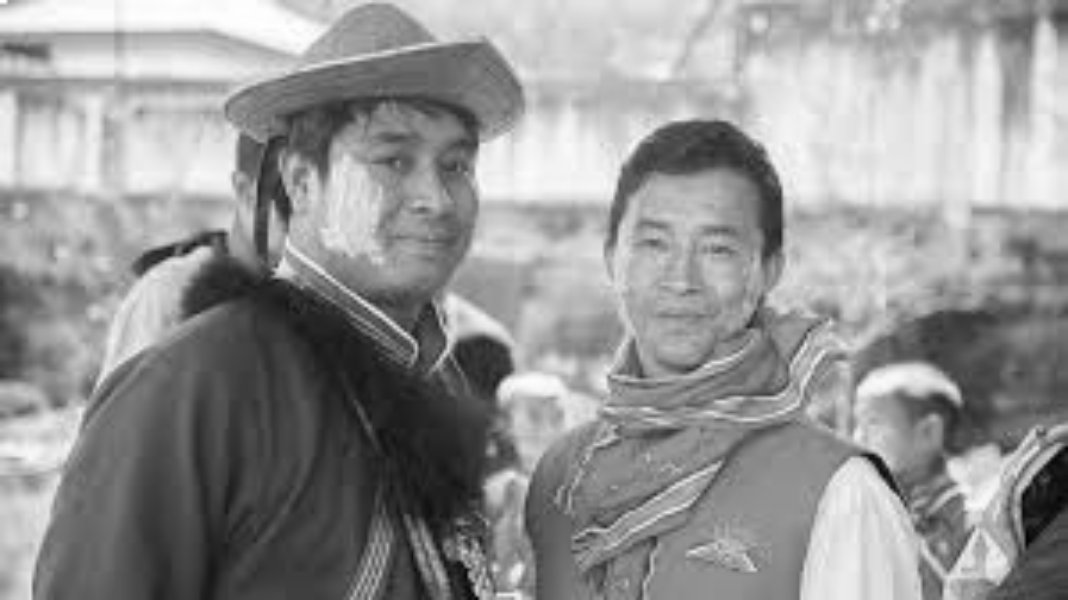practices showing communitarian life
Tagin Tribe’s social life, arunachal pradesh
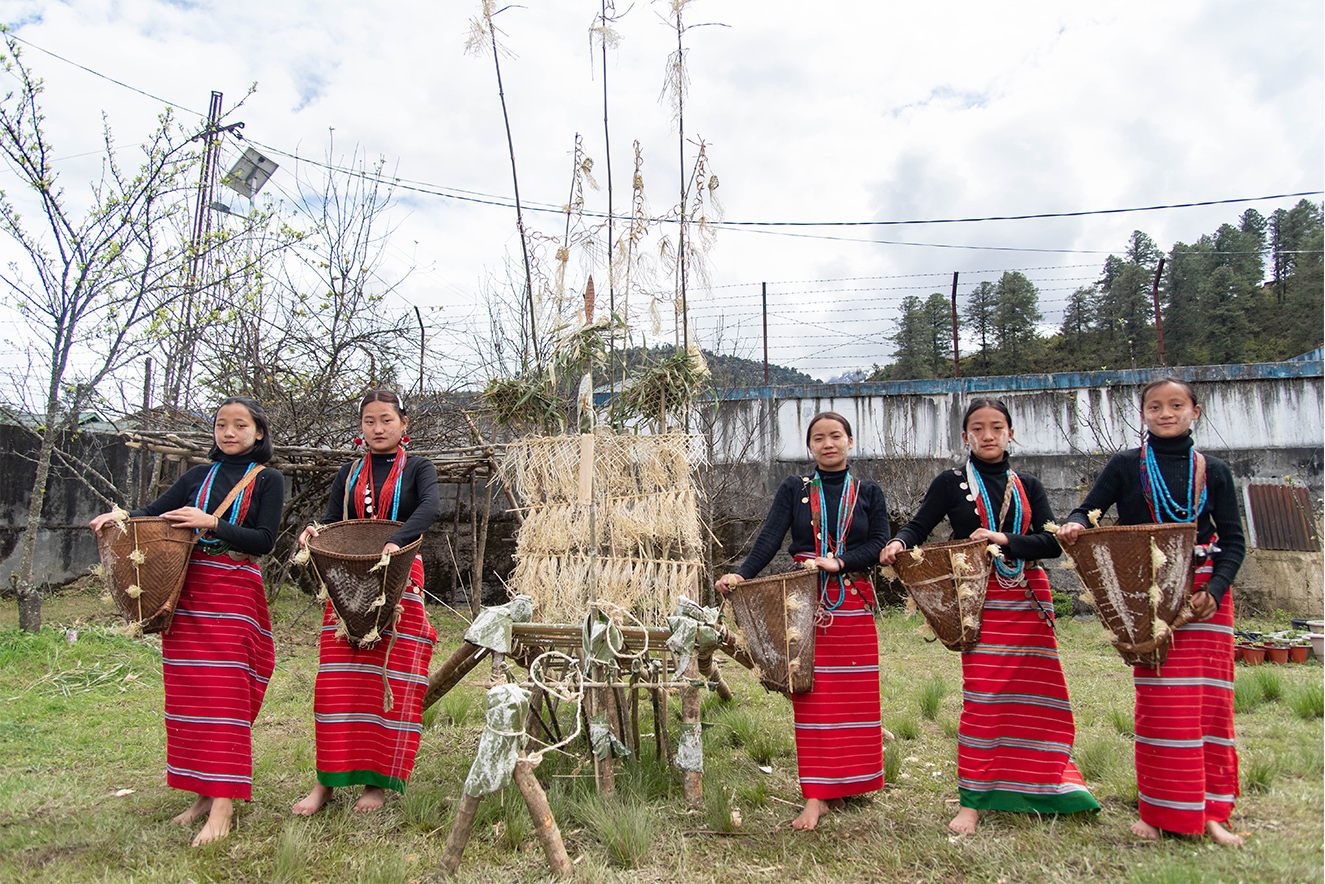
The Tagin Tribe is one of the major indigenous communities of Arunachal Pradesh, and they predominantly inhabit Upper Subansiri district. They speak the Tagin language, which falls under the Tibeto-Burman group, and adopt animism. Tagins' economy is mainly agricultural in nature, including rice and millet farming. The Tagins have clans, meaning a close social arrangement. Their celebrations like Si-Donyi illustrate their rich cultural heritage through nature- and spirit-respecting ceremonies
The Tagins have strong communitarian values based on their rituals, festivals, and farm life. Si-Donyi is a key festival in which the people gather to worship the sun and earth for fertility. Food and rice paste (Iting) are exchanged during celebrations, representing oneness. Social bonding is achieved through ritual dances, communal meals, and songs. These practices reflect their spirit of cooperation and harmony with nature
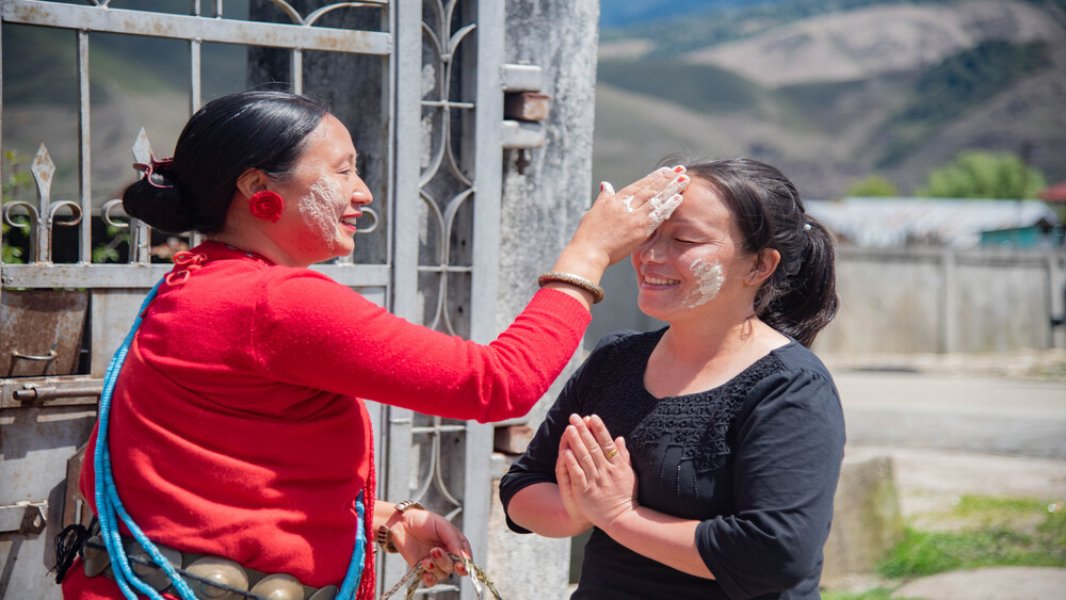
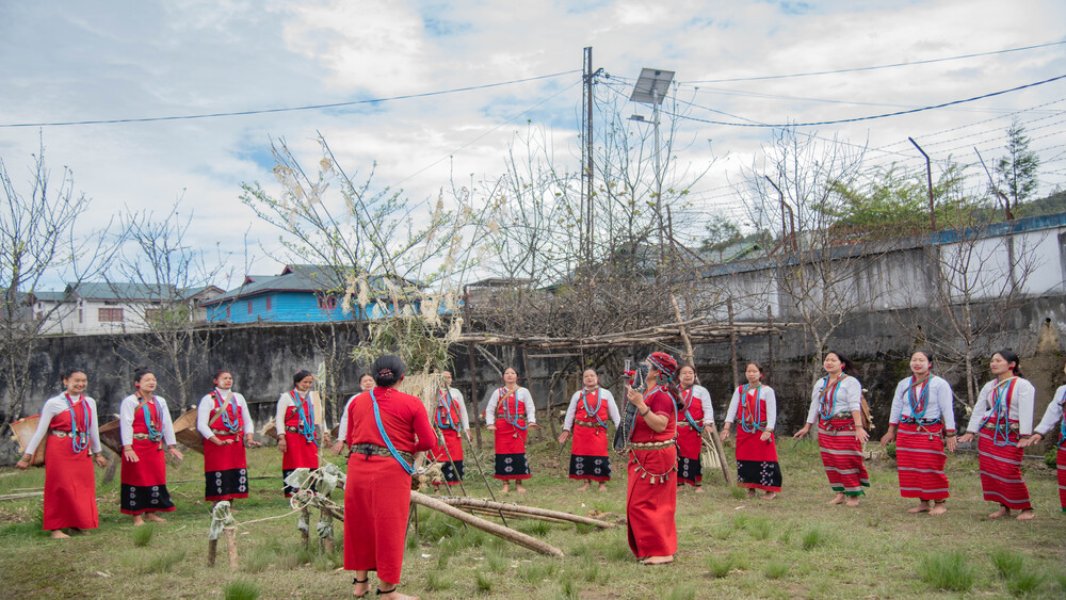
The Tagin culture is organized by clans that observe distinctive customs and traditions. Conflict resolution and preservation of tradition are the responsibility of clan elders, who play important roles in these functions. Hierarchies properly maintain order and harmony, whereas communal process reflects their collectivist culture. Clan ties also determine marriage and sharing of social obligations, thus aligning hardness with its communal identity
The Tagins value nature and spirituality, with animism forming the core of their belief system. They perform rituals to appease spirits and maintain harmony with their environment. The community respects elders and emphasizes mutual aid. Their belief in sustainable living, rooted in harmony with the land, reflects their deep connection to nature. These values are integral to their identity and guide their interactions
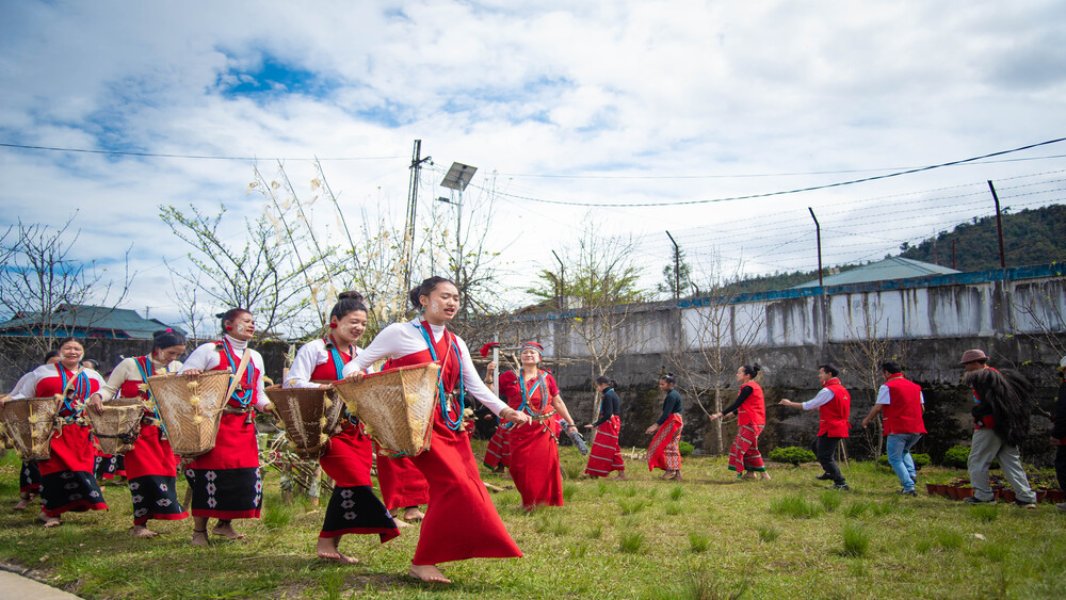
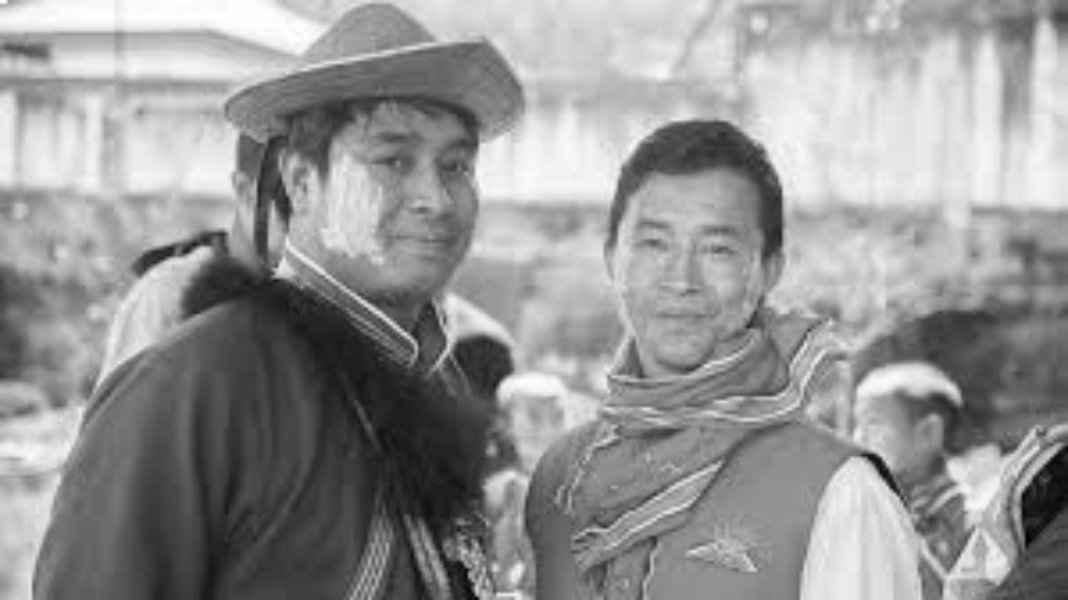
The communitarian life of the Tagins fortifies social resilience and cohesion. Through their collective life in agriculture, rituals, and conflict, their well-being as a community is assured. Their communal living has also acted as a protection of their cultural identity through fostered belonging. There are threats to these traditions through modernization, which encourages attempts to strike a balance between progress and preservation
